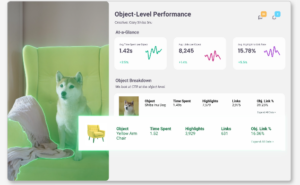By Tom Ryan, Founder and CEO at MarCloud
Once upon a time, Artificial Intelligence (AI) was something that only people at Google or Microsoft had the luxury of seeing live in action. Nowadays, more and more people and organisations are becoming familiar with AI due to the advancements of offerings such as GPT-4 which brings it to the forefront of daily life.
Marketing is not exempt from this transition. Technology is moving towards data democratisation, where the advancement of AI means easier access to complex solutions and the chance for all businesses to become more efficient, innovative and creative, all at a reasonable cost.
But by using AI, are we denying responsibility and outsourcing our craft to something that can only base decisions on what has already been done, eventually stifling creativity and innovation?
Both could be correct and in both cases, it depends on how AI is being used.
A basic principle of AI
In a nutshell, AI looks at an extremely large pool of data to process information and spits out something understandable to you on the other side. There are now AI tools that can automatically generate images of your choice, write full eBooks for you and even generate audio clips using famous people’s voices, for example.
An underlying rule though is that the size and quality of the data pool matters. Bad data in still means bad data out and the CEO of OpenAI even claimed that AI results can still be wildly inaccurate.
Lazy marketing
There are many ads circulating on YouTube from people selling courses on how to harness ChatGPT to make money. This demonstrates how easily accessible this technology and content has become to people around the world.
This has several implications for business. For example, a graduate fresh out of university could enter your business and claim they have all of the marketing skills required to fill a marketing role when in reality, they are just great at entering search terms into AI engines.
To stand out, companies should be doubling down on authenticity and originality. There is going to be floods of similar content circulating across platforms and soon customers will be able to easily identify AI-generated content from more authentic, original content. Will it matter though? That’s an interesting question.
How marketers should use AI today
Remember, AI is a dark art to the less-technical minds and therefore the output can sometimes be misinterpreted as being hard truths.
Marketers stand to benefit from training their teams and always being transparent when presenting AI models.
Here are seven examples of how businesses can harness AI and get more from their Customer Relationship Management (CRM) and Marketing Automation Platform (MAP) data:
- Identifying Key Accounts
In the B2B world, you need to know who your key customer and prospect accounts are. Guide your salespeople to the biggest potential wins.
- Email Send-time Optimisation
Not everyone opens an email at the same time, instead let AI work out when is the best time to send per individual, based on historic data.
- Scoring and Grading Prospects
AI-based scoring and grading means you can train the model to help you find the most engaged and relevant leads to prioritise your marketing efforts.
- Engagement Frequency
Are you contacting prospects too often? Let AI flag when people should be left alone or even better when you aren’t communicating with them enough.
- Identifying Campaign Influence on ROI
If you aren’t effectively tracking each touchpoint in the customer journey, at scale, AI can figure this out for you and surface your top-performing campaigns.
- Measuring ROI and Managing Campaign Budgets
AI can look at your marketing activities and identify if you’re on track to hitting targets or if you should be pulling back budgets for a particular activity. It can even break this down by audience segment, so you know you’re always on the right track.
- Forecasting
The ability to foresee performance is business critical and with AI, you can have a clearer picture of opportunities that might close within a time range you set. Create worse case, realistic and best-case scenarios to understand the margins you have to play with.
What’s next for marketers?
More of the same, but with layers of complexity. Being able to search your own CRM e.g ‘In the UK, how effective is emailing Accountants in the big 4 firms for us in January-March?’ and receiving a clear answer is becoming more and more possible. Did I use Chat-GPT to write this article? No, I didn’t. But I guess you’ll have to take my word for it.









